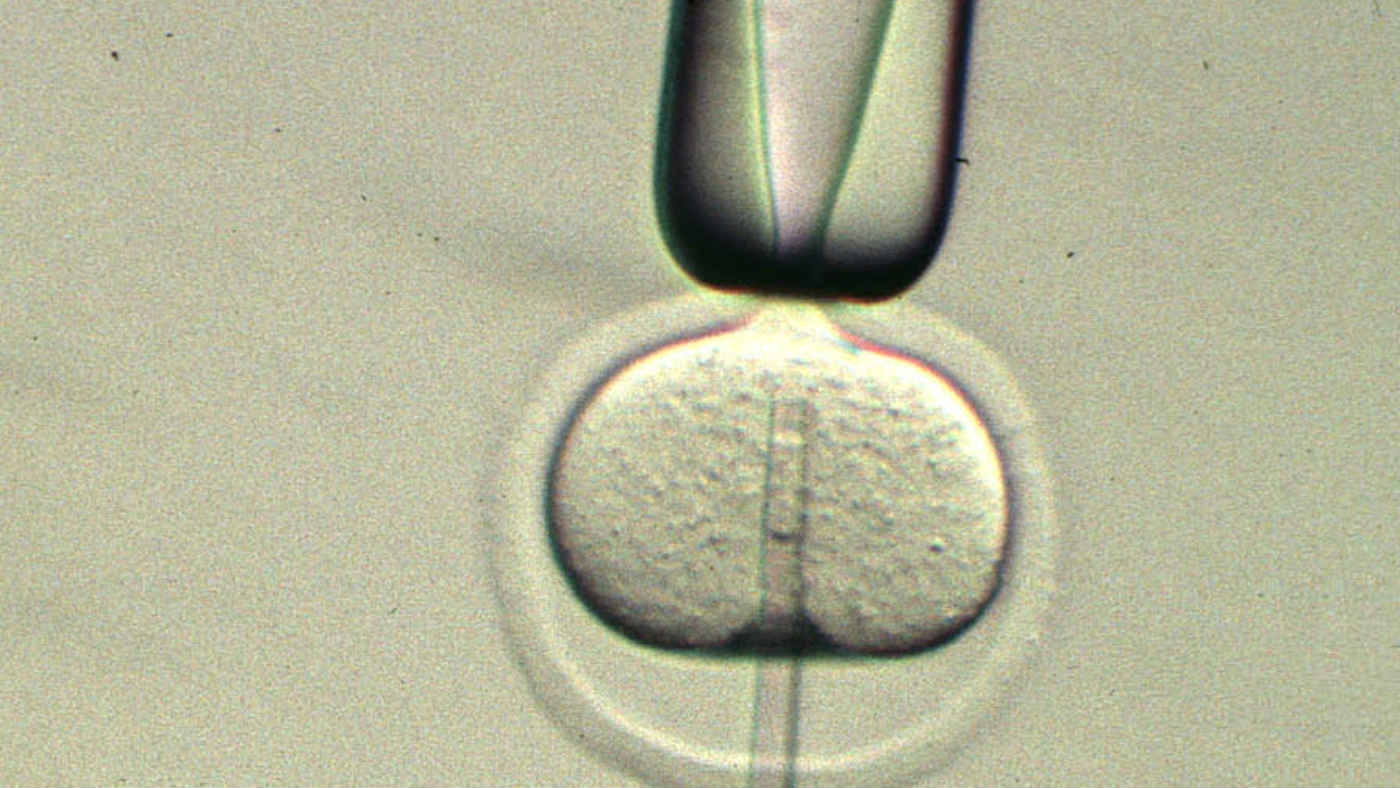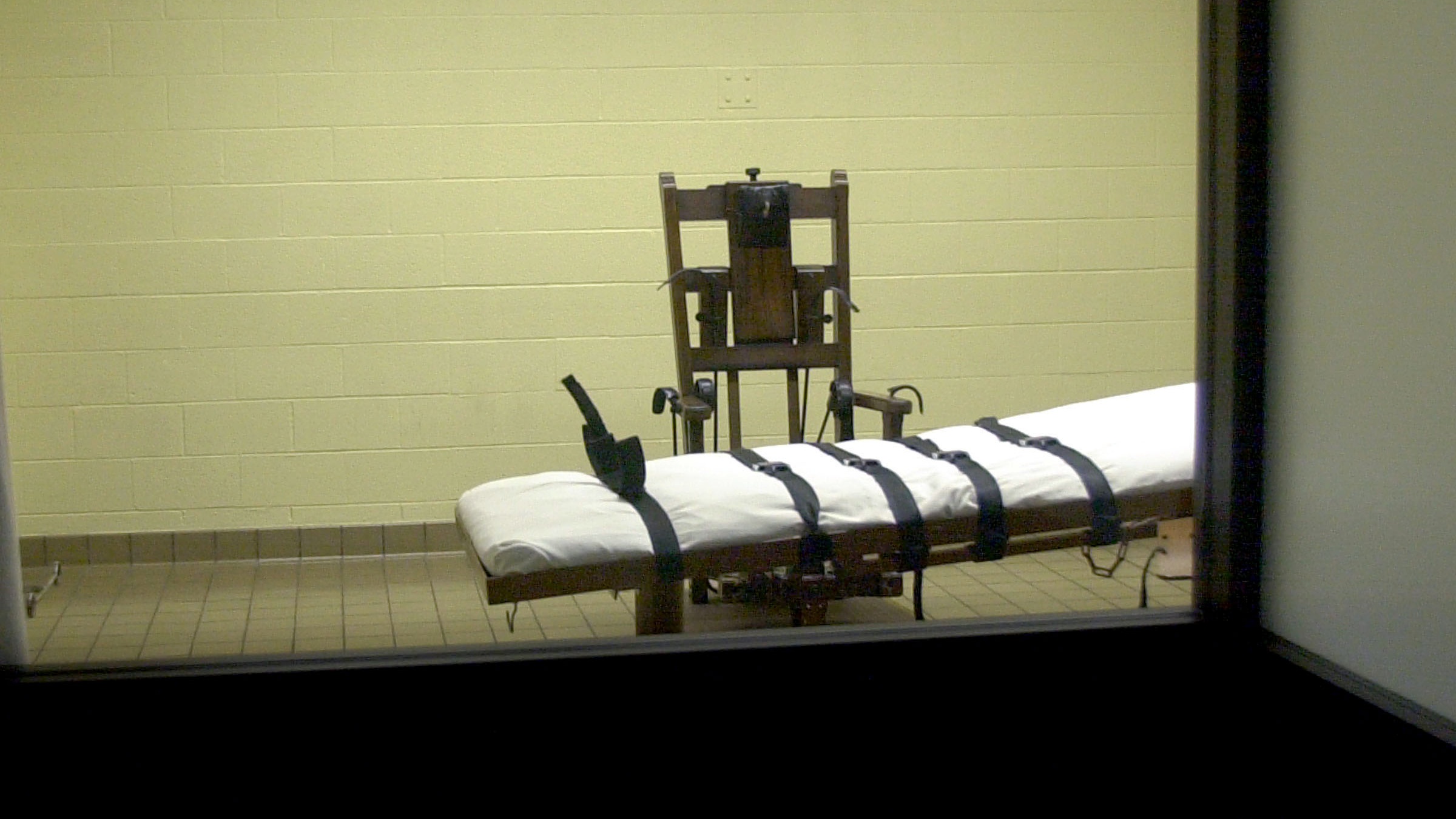Heart disease flaw removed from human embryos
Scientists in US successfully edit DNA mutation in gene

A free daily email with the biggest news stories of the day – and the best features from TheWeek.com
You are now subscribed
Your newsletter sign-up was successful
An international team of scientists has successfully edited of the genes of a viable human embryo, correcting a mutation that can cause the heart condition hypertrophic cardiomyopathy.
Researchers at Oregon Health & Science University, the Salk Institute for Biological Studies and South Korea's Institute for Basic Science used a gene-editing tool known as Crispr-Cas9 to create healthy embryos.
The breakthrough "potentially opens the door to preventing 10,000 disorders that are passed down the generations", says the BBC.
The Week
Escape your echo chamber. Get the facts behind the news, plus analysis from multiple perspectives.

Sign up for The Week's Free Newsletters
From our morning news briefing to a weekly Good News Newsletter, get the best of The Week delivered directly to your inbox.
From our morning news briefing to a weekly Good News Newsletter, get the best of The Week delivered directly to your inbox.
"Gene correction would rescue mutant embryos, increase the number of embryos available for transfer and ultimately improve pregnancy rates," the scientists wrote in a report on their work.
While the result of the research marks a milestone in the treatment of hereditary disease, it also raises a number of ethical questions due to changes made to the human germ line – the genes of sperm, eggs or embryos.
"Scientists and bioethicists have called for caution in editing the germ-line because such changes wouldn't only alter the individual, but would be passed on to future generations," The Australian says.
More testing work remains to be done, reports The Guardian, "but even if it seems safe, scientists face major regulatory hurdles before clinical trials could start".
A free daily email with the biggest news stories of the day – and the best features from TheWeek.com
Such trials are highly unlikely to take place in either the US or the UK. The US Food and Drug Administration is banned from even considering human trials with edited embryos, while it is illegal in Britain to implant a modified embryo in a woman.
-
 How the FCC’s ‘equal time’ rule works
How the FCC’s ‘equal time’ rule worksIn the Spotlight The law is at the heart of the Colbert-CBS conflict
-
 What is the endgame in the DHS shutdown?
What is the endgame in the DHS shutdown?Today’s Big Question Democrats want to rein in ICE’s immigration crackdown
-
 ‘Poor time management isn’t just an inconvenience’
‘Poor time management isn’t just an inconvenience’Instant Opinion Opinion, comment and editorials of the day
-
 Texas’s abortion law: the Republicans get their way, at last
Texas’s abortion law: the Republicans get their way, at lastSpeed Read SB8 authorises private citizens to sue anyone who performs, ‘aids or abets’ an abortion after six weeks of pregnancy
-
 Changing legal gender: what’s new and how does it work?
Changing legal gender: what’s new and how does it work?Speed Read Cost of a gender recognition certificate application is reduced from £140 to £5
-
 America’s bloodiest state votes to ban the death penalty
America’s bloodiest state votes to ban the death penaltySpeed Read Virginia has executed more than 1,300 people in its 400-year history
-
 FBI accused of ‘fake’ background check on Donald Trump Supreme Court nominee
FBI accused of ‘fake’ background check on Donald Trump Supreme Court nomineeSpeed Read Democratic senator calls for ‘proper oversight’ over Brett Kavanaugh investigation into sexual assault claims
-
 Family of Malcolm X claims letter proves FBI and NYPD involved in his murder
Family of Malcolm X claims letter proves FBI and NYPD involved in his murderSpeed Read Daughters of assassinated civil rights leader demand reopening of investigation
-
 Meghan Markle granted nine-month delay in Mail on Sunday privacy case
Meghan Markle granted nine-month delay in Mail on Sunday privacy caseSpeed Read Duchess of Sussex had applied for summary judgement in battle over letters sent to her estranged father
-
 Meghan Markle to pay £67,000 after losing first round of legal battle against Mail
Meghan Markle to pay £67,000 after losing first round of legal battle against MailSpeed Read Duchess of Sussex is suing the newspaper’s publisher for printing parts of private letter to her father
-
 MI6 agents tried to stop judge seeing secret documents in ‘licence to kill’ case
MI6 agents tried to stop judge seeing secret documents in ‘licence to kill’ caseSpeed Read Intelligence agency was forced to apologise for ‘any misunderstanding’, court documents show